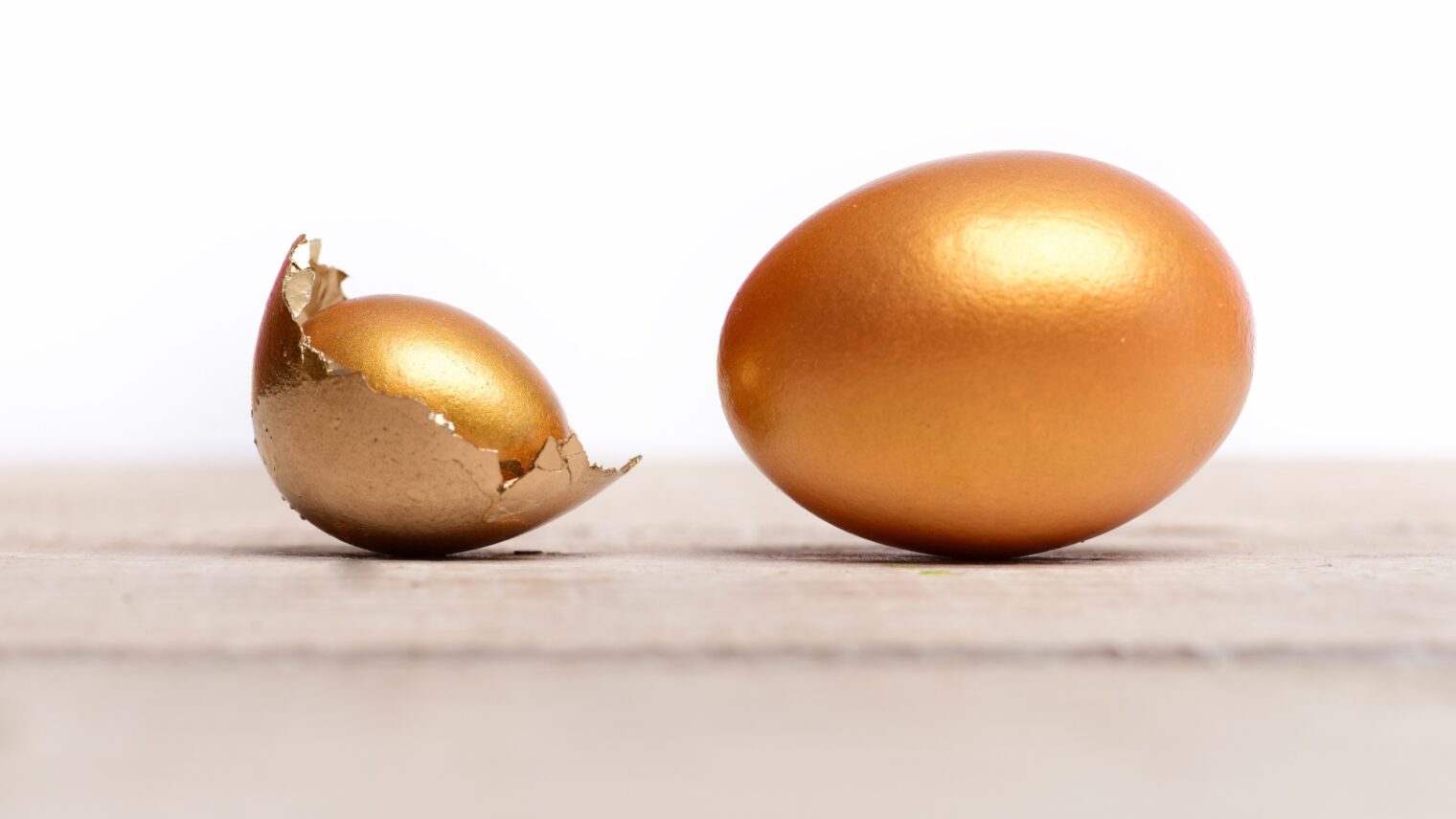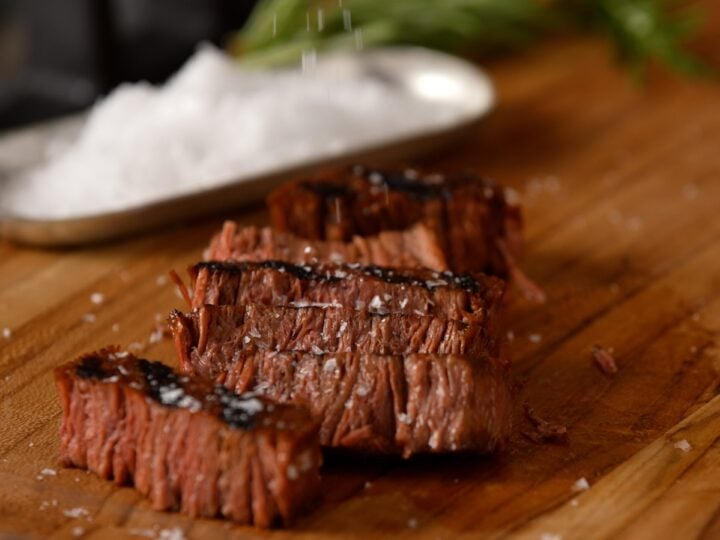Food technology is all about piling your plate with safer, cheaper, fresher, more nutritious and environmentally friendly edibles.
Continuing in the tradition of older cousins such as decaffeination and freeze-drying, today’s food-tech dabbles in tissue engineering, stem-cell research, microbiology and nanotechnology. Given Israelis’ expertise in these areas, it’s only natural that investors and industrialists in the multibillion-dollar food-tech industry are paying attention to food-tech trends in the startup nation.
Signs of this trend include the construction of a huge hub for food innovation and research in the Upper Galilee; and the establishment of The Kitchen FoodTech Hub in Ashdod and FoodLab Capital in Rishpon to invest in Israeli food-tech startups.
This week, Israel is involved in two international food-tech events.
First, there’s the international Future Meating conference today (May 7) at the Technion in Haifa, aiming to drive “clean meat” (cultured meat made from cells of living animals) closer to affordable mass production.
“We’re probably in the top five of countries in terms of food-tech innovation”
On May 8-11 in Milan, eight Israeli startups will exhibit at the 2017 Seeds&Chips Global Food Innovation Summit, at which former US President Barack Obama will be the guest of honor.
“Really big names are coming to Israel looking for innovation in food-tech,” says Michal Neeman, CEO of Lumeega, which promotes business development in the Israeli food and food-tech industry. She will accompany the Israeli delegation to Milan along with officials from the Israel Export Institute and Ministry of Economy.
“There’s no data about this area because it’s very new. But probably we’re in the top five of countries in terms of food-tech innovation,” Neeman tells ISRAEL21c. “The most dominant areas are agro-tech, protein substitutes, and fruits and vegetables for use in processed foods.”
Neeman estimates that more than 100 Israeli startups are in the fairly new food-tech sector so far, and their profile is strong because of global regard for Israel’s tech expertise.
Yarok Technology Transfer CEO Jonathan Sierra says Israel is a logical place for food-tech because of its collaborative environment in the sciences and because Israelis tend to look for difficult problems to solve rather than invent solutions before identifying a problem.
“This sector is definitely going to grow, and more investors are focusing on it as other areas of technology get saturated,” Sierra tells ISRAEL21c.
Here’s a quick overview of 14 disruptive Israeli food-tech startups.
- Hargol FoodTech

Hargol, formerly Steak TzarTzar, will start exporting its grasshopper-based protein powder to North America this month. In December, the award-winning company established the world’s first commercial-scale grasshopper farm in Israel and is closing a funding round (with investors from Israel, Singapore and the US), bringing its total investment to $1 million. On May 7, Hargol won the TLV Startup Challenge in the ag-tech/food-tech category and will present at the Alltech One Ideas Conference for 4,000 agriculture and food leaders in Kentucky later this month.
- Hinoman
Hinoman breeds, develops and cultivates Mankai, a proprietary, protein-rich, whole-leaf vegetable grown using sustainable hydroponics. In March this year, Japanese frozen food-to-seasonings giant Ajinomoto agreed to invest $15 million in Hinoman and acquired exclusive sales rights for Mankai in Japan.
- Flying Spark
Flying Spark plans to build a facility in Israel to grow fruit-fly larva economically and process them into protein powders. Fundraising is under way and the startup has shipped samples to interested manufacturers in Mexico, Japan and Europe.
- Amai Proteins
Amai Proteins (“amai” means “sweet” in Japanese) is using computational protein designed to improve the properties of taste-enhancing proteins to make them affordable and suitable for use in the food industry.
- DouxMatok
DouxMatok has a technology to enhance the sweetness of sugars, enabling manufacturers to use less sugar in foods and beverages while retaining the flavor profile. The company is running a $7.5 million Series A funding round ahead of an international marketing rollout aimed for mid-2018.
- SuperMeat
SuperMeat is developing a system to culture chicken meat, with the first public tastings possibly within a year. The long-range plan is to develop a home appliance.
- Meat the Future
Another clean-meat startup, tentatively named Meat the Future, will soon enter The Kitchen to work toward commercializing a tissue-engineering technology to create steak from bovine cells in a bioreactor.
- INDI
INDI is seeking a commercial partner to mass-produce its patent-pending nondairy, soy-free infant formula and pediatric nutrition drink. The company is honing its business and marketing plan in the 8200 EISP accelerator.
- BactuSense
BactuSense is creating a chip-based device to help food and beverage plants detect even low concentrations of bacteria such as salmonella and listeria within two hours. Currently, manufacturers must send samples to labs for culture over at least 24 hours.
- Yarok Technology Transfer
Yarok Technology Transfer has developed and validated rapid test kits for the fresh-food Industry to detect and quantify foodborne pathogens such as E. coli and listeria in leafy greens and dairy products. One working prototype is installed at Israel’s second-largest dairy, while another is being tested at a fresh salads producer in Italy. One of the top 10 finalists in the Food+City Challenge Prize contest in Austin, Texas in February 2017, Jerusalem-based Yarok also is developing a kit to detect pathogens on surfaces, equipment and clothing in food-production facilities.
- Inspecto
Inspecto has built a prototype portable scanner and “smart shopping” app to help both producers and consumers detect pesticide residues in food. Inspecto, a graduate of the 8200 EISP and MassChallenge accelerators, was judged one of two winners of the recent UN Economic Commission for Europe Ideas4Change Sustainable Development Goal Award.
- NutraT
NutraT nutraceutical instant drink powders will be launched in functional coffees developed by Mongibello, France, at the Vitafoods show in Geneva, May 9-11. The coffees designed for ETNA office coffee machines include Detox with artichoke extract, Cardio with olive extract, Relax with lemon balm extract and Mental with a unique ginseng extract produced using HyperPure proprietary technology developed at Israel’s Frutarom. NutraT is made by Nutrafur S.A., a Frutarom company in Spain.
- CHiCK.P
CHiCK.P, the brainchild of Dr. Ram Reifen, professor of human nutrition at the Hebrew University of Jerusalem and director of its center for nutrigenomics and functional foods, is seeking a strategic partner to commercialize its flavor-neutral, non-GMO chickpea protein concentrates and isolates on a commercial scale. Samples are being evaluated by international food companies for use in meat substitutes, dairy alternatives, beverages, pastries, snack, bars and more.
14. Equinom
- Equinom has a cutting-edge, non-GMO breeding technology that improves the yield and protein content of seeds, starting with legumes, sesame and quinoa. The company signed an agreement with Obela, a joint venture of PepsiCo and the Strauss Group, to use its proprietary process in developing various field crops, and last year raised $1.25 million in a financing round led by Israeli seed and field crop specialist Hazera 1939.

















